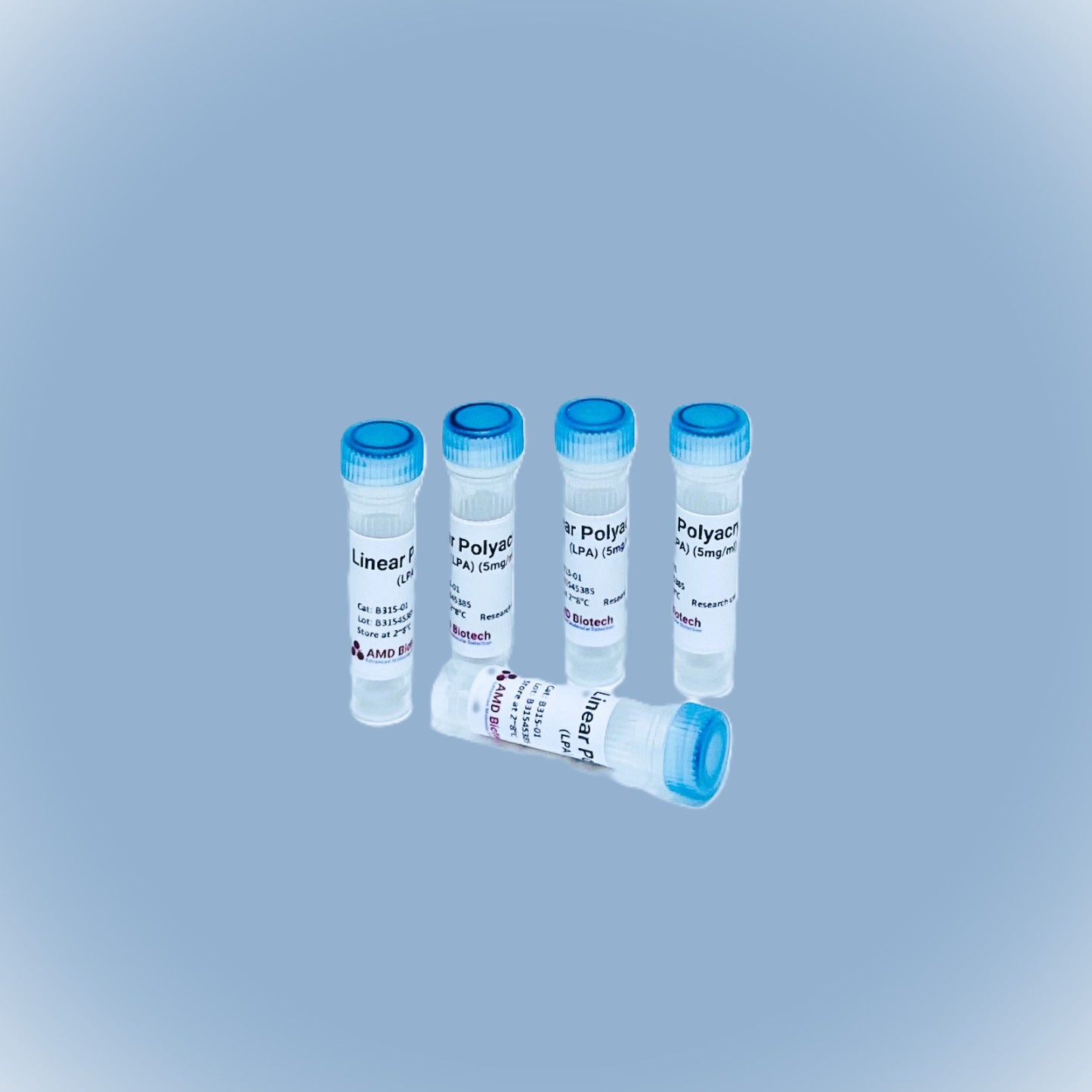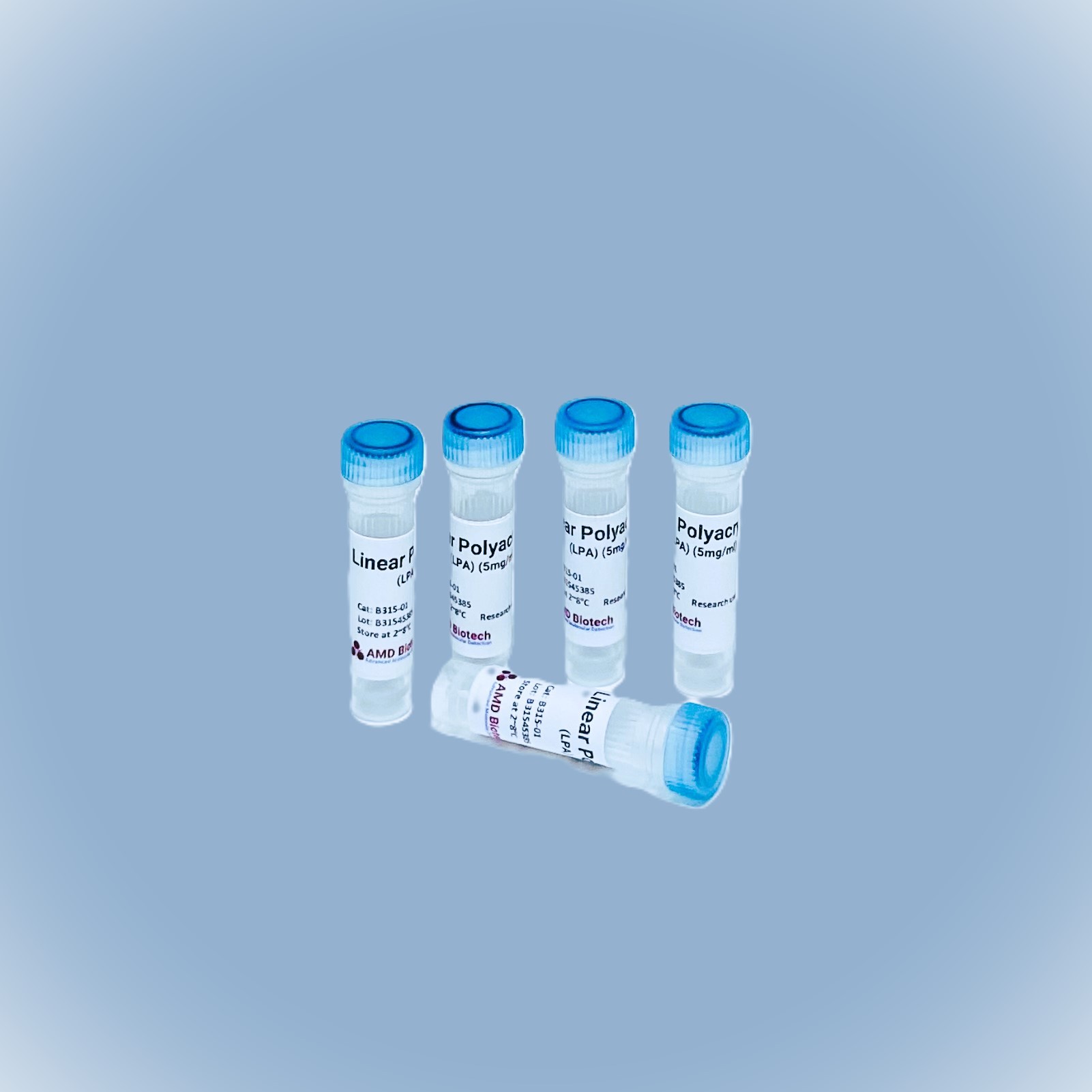Linear Polyacrylamide Solution (LPA) (5mg/ml)


Product Information
- Significant cost savings compared to any similar product
- No resuspension or thawing before using
- Quantitative recovery of low concentrations (ng/ml) of nucleic acid
- Prevents pellet loss in nuclease protection assays.
- Precipitate DNA fragments > 15 base pairs
Linear Polyacrylamide (LPA) is an inert coprecipitate used to enhance the recovery of nucleic acids during alcohol precipitation, making it essential for the quantitative recovery of small amounts of nucleic acids from dilute solutions. Compared to other carriers like tRNA or glycogen, LPA offers several advantages for DNA recovery and the study of DNA-protein interactions. One key benefit is that LPA eliminates the risk of introducing trace contaminants into the precipitation process, as it is chemically synthesized and rigorously tested for nuclease contamination. It is free from biological material contamination. Additionally, LPA does not inhibit enzymatic reactions or interfere with spectrophotometric measurements at 260 nm and 280 nm. These unique advantages make linear polyacrylamide an ideal choice for precipitating DNA and RNA in amplification reactions.
Applications
- For DNA/RNA precipitation,
- Coprecipitate
- PCR amplification
- Ligation
- Other applications where high purity and recovery are essential.
Specifications
- Product type:
- Linear polyacrylamide solution
- Form:
- Clear, colorless liquid,
- Purity:
- Molecular Biology Grade
- Shipping & Storage:
- Shipping at ambient temperature. Store at 2-8°C.
- ============================

